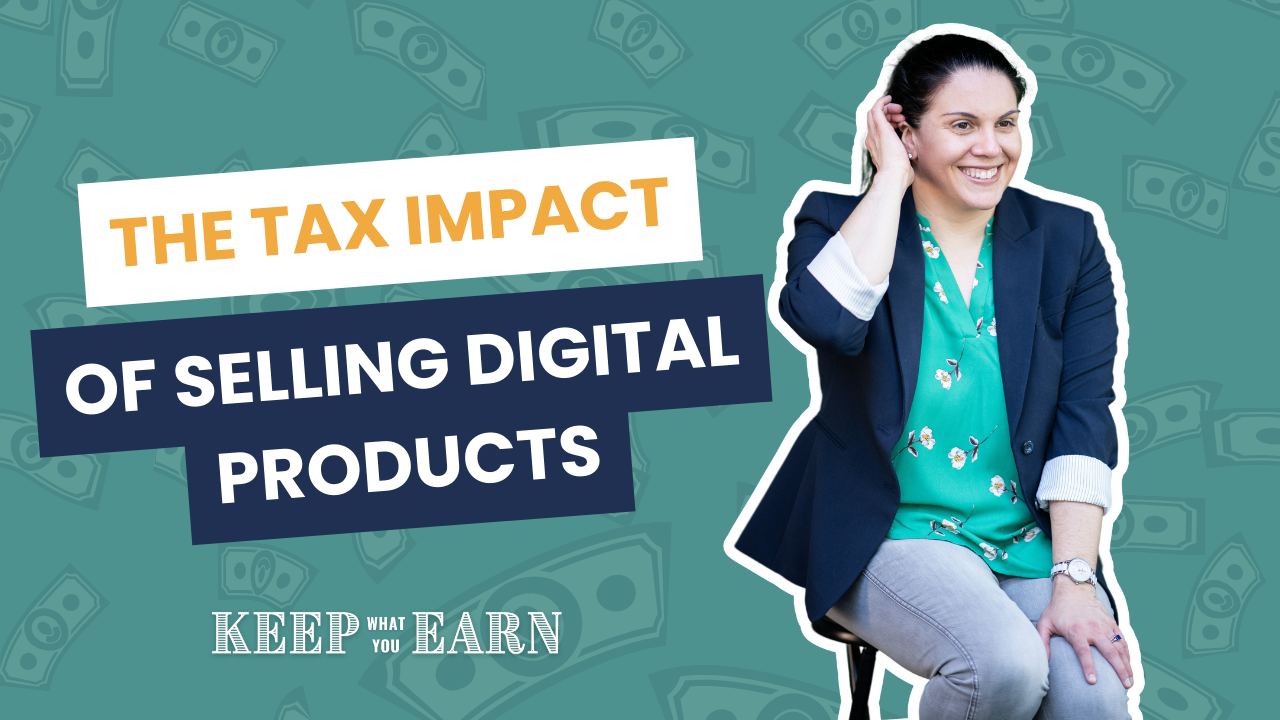
The Tax Impact of Selling Digital Products
Nov 10, 2023In the latest episode of "Keep What You Earn," we dive into the world of digital products and the tax implications that may arise from their sale. As online businesses continue to grow and more entrepreneurs offer digital products like ebooks, courses, and resources, it's crucial to understand how these sales can affect your business's tax obligations.
Anne Weinstein, our resident CPA and business owner, sheds light on the unique challenges that digital products pose for both business owners and tax agencies. Unlike physical products, digital products are relatively new, and the government is still catching up with determining their tax treatment.
One key aspect discussed in the episode is the sales tax associated with digital products. While every state has its own regulations, most states do not tax services but tend to tax physical products. However, the taxation of digital products varies from state to state. Anne provides insights into how to navigate these varying regulations and determine if your digital products are subject to sales tax.
During the episode, Anne emphasizes the importance of knowing where your customers are located and where your business has a significant presence, known as nexus. Understanding the tax laws in each state where you sell your digital products is critical to ensure compliance and avoid potential penalties.
Whether you're a seasoned online business owner or just starting out in the digital product space, this episode is a must-listen to gain a clear understanding of the tax implications surrounding digital product sales.
To learn more about how the sales of digital products can impact your business's taxes, tune in to Episode 428 - "The Tax Impact of Selling Digital Products" on the "Keep What You Earn" podcast. You can find it on our website or wherever you listen to podcasts.
As always, remember that the information shared in the podcast is for educational purposes only and should not be considered individual tax advice. It's essential to consult with a professional to address your specific situation.

